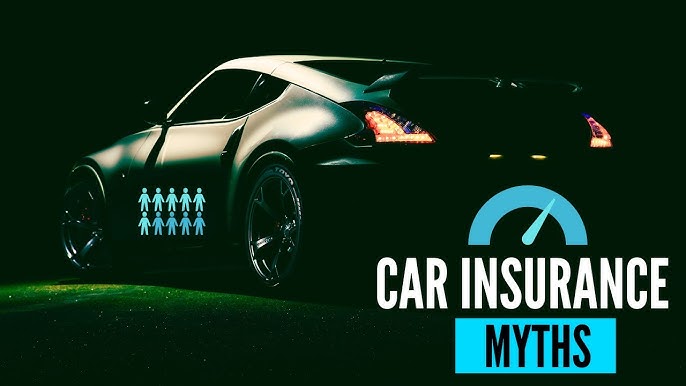Introduction
Car insurance is one of those topics that seems to come with its own mythology. Everyone’s got a story about what “definitely” affects your premium or what’s “totally illegal.” Spoiler alert: a lot of these myths are just plain wrong. Let’s bust the top 7 myths about car insurance so you can drive with confidence—and maybe save some cash along the way.
1. Myth: Red Cars Cost More to Insure
You’ve heard it before: red cars are flashy, fast, and automatically more expensive to insure.
The Truth:
Insurance companies don’t care about your car’s color. Rates are based on factors like the make, model, year, and engine size—not whether your car screams “Ferrari red.”
2. Myth: Your Insurance Covers Anything in Your Car
Got a fancy laptop in the backseat? A trunk full of expensive tools? Surely your car insurance will cover it if they’re stolen, right?
The Truth:
Nope! Car insurance typically covers your vehicle, not its contents. For stolen items, you’d need homeowners or renters insurance.
3. Myth: Older Drivers Always Pay Less
You’d think decades of experience behind the wheel would guarantee lower rates, right?
The Truth:
While older drivers may get discounts for their experience, premiums can creep up again for those over 70. Why? Statistically, older drivers are more likely to be involved in accidents.
4. Myth: You’re Covered No Matter Who Drives Your Car
You let a friend borrow your car, and they crash it. That’s their problem, right?
The Truth:
Insurance typically follows the car, not the driver. If your friend causes an accident, it’s your insurance policy that takes the hit. Choose your borrowers wisely!
5. Myth: Comprehensive Insurance Covers Everything
“Comprehensive” sounds all-encompassing, so it must cover everything, right?
The Truth:
Comprehensive insurance covers specific non-collision events like theft, fire, or a tree falling on your car. For actual collisions, you need collision coverage.
6. Myth: It’s Cheaper to Cancel Insurance If You’re Not Driving
If your car’s parked in the garage for a few months, why not just cancel your policy and save some cash?
The Truth:
A lapse in coverage can lead to higher premiums when you restart your policy. Plus, you’ll be unprotected against theft or damage while the car is idle.
7. Myth: Your Credit Score Doesn’t Affect Your Premium
“Why would my credit score matter? It’s not like my credit card drives my car!”
The Truth:
In many states, insurers use your credit score to predict risk. Lower scores can lead to higher premiums, though some states ban this practice.
Conclusion
Car insurance myths can cost you money—or worse, leave you unprepared. Understanding the truth about your coverage ensures you get the protection you need at a price that makes sense. So the next time someone tells you red cars cost more to insure, you can confidently roll your eyes and keep driving.




Leave a Reply